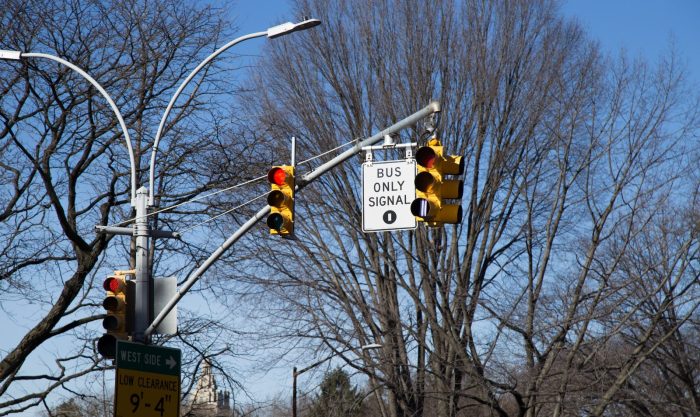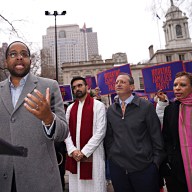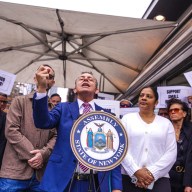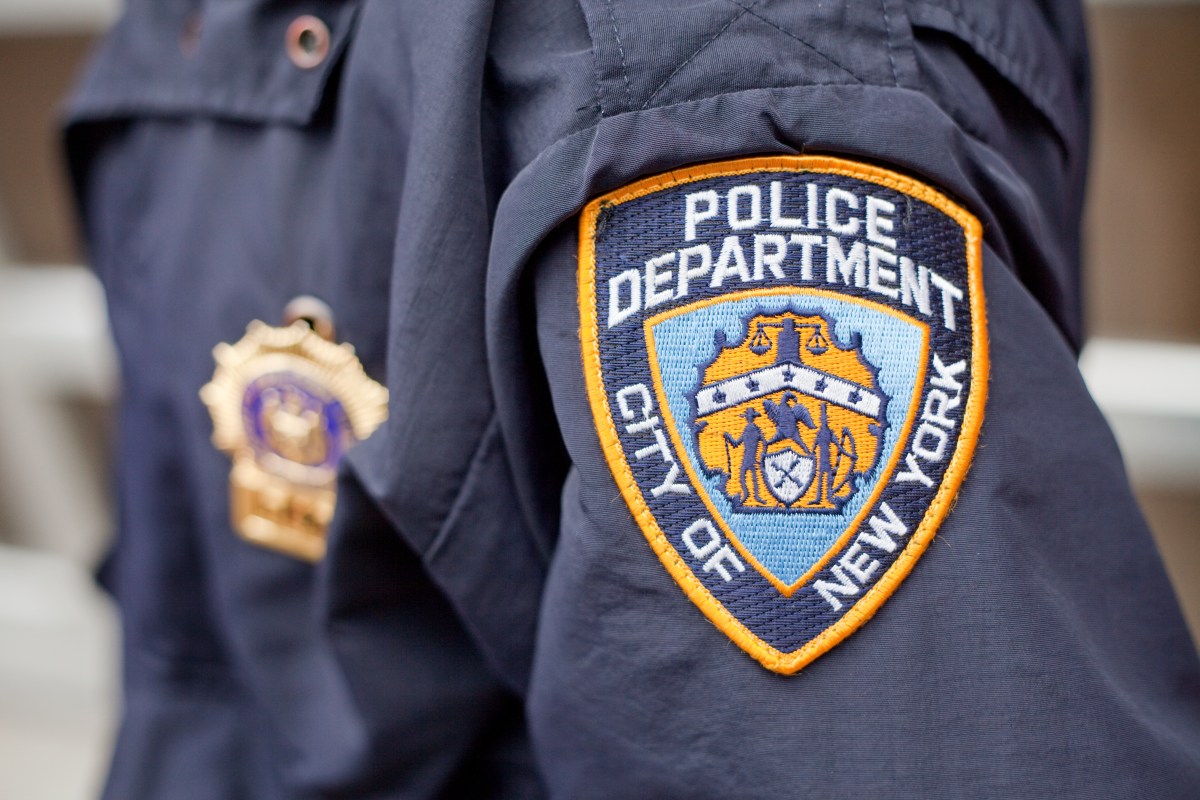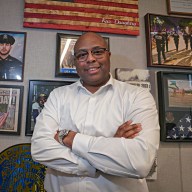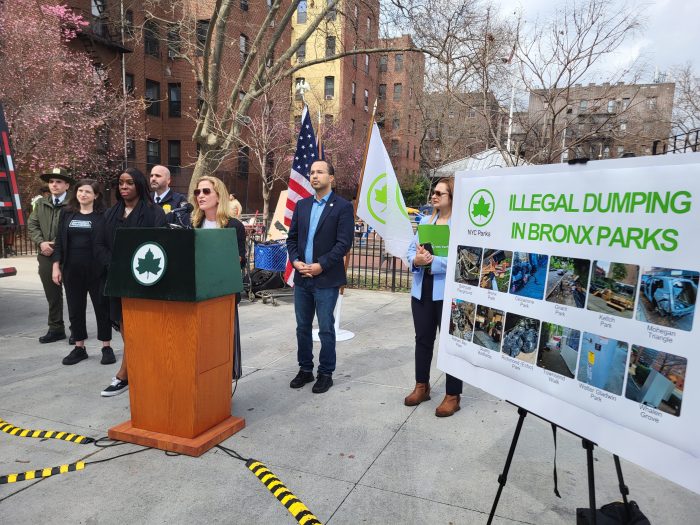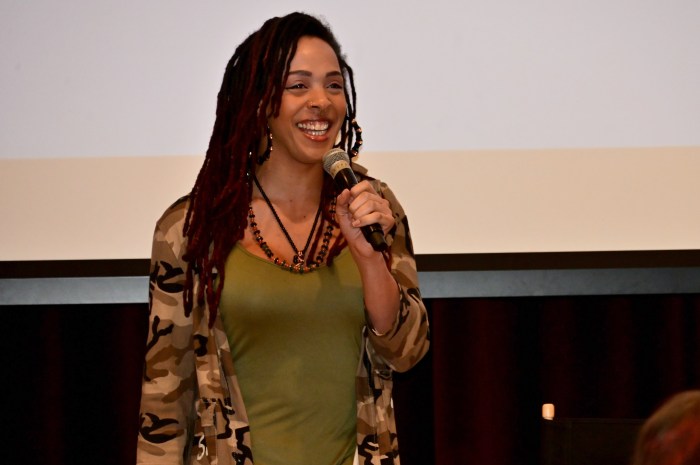The city’s education department is currently facing real concerns around a potential bus strike that could affect anywhere from 85,000 to 150,000 students at the beginning of the school year, according to Schools Chancellor David Banks.
The chancellor made the sudden announcement about the city’s ongoing negotiations with the Amalgamated Transit Union (ATU) to members of the Chancellor’s Parent Advisory Council (CPAC) during their regular meeting on Friday, Aug. 11.
“We do have some immediate concerns,” Banks told the CPAC. “We’re currently negotiating with the ATU around buses. And there’s some real concerns around a potential bus strike.”
Banks told CPAC members that they would be “hearing from us in the coming days” and that negotiations are “still going on.”
“We don’t have a deal just yet,” Banks said. “I don’t want to jump the gun yet.”
Banks told CPAC that it was the first group to be informed that a potential bus strike loomed. Banks said that the administration will soon have a “clear direction for all of our parents across the system” as to what to expect, including how they should prepare for a strike if need be.
New York City Public Schools spokesperson Nathaniel Styer told amNewYork Metro in a statement that “these negotiations are unlike most involving the city because they are between bus companies, who contract with the DOE, and their employees, who are not city employees.”
“We are continuing to monitor the situation, engage with all stakeholders, and provide additional information to all our families when we are able,” Styer stated. “The city encourages the parties to remain at the bargaining table until they reach a voluntary agreement.”
Tomás Fret, president and business agent for ATU Local 1181-1061, which represents many of the drivers, told amNewYork Metro that the union isn’t negotiating with the city, per se, but with seven private bus companies — a few of which are under the same parent company. The ATU has been negotiating with the bus companies for about a year.
Fret refrained from commenting on the exact demands being made by the companies “because they’re private companies and negotiations are private right now” and “confidential.” He backed Banks’ assertion about the potential of a strike, saying that the chancellor “put them on notice that there might be a strike in September for school buses.”
“He is correct about that,” Fret said. “There might be a strike, but we don’t know that yet.”
Fret said that the union wants “all the bus drivers, attendants to be on the same page as far as wages and everything else.”
“I want everybody to be treated the same,” Fret said. “We’re not interested in having different tiers.”
Banks said that he was “certainly hopeful” but that there is still a possibility of a work action starting this week. So far, there hasn’t been any official planned strike. Banks had told CPAC on Friday that it would hear more in the coming days.
Bussing advocates, including Parents to Improve School Transportation (PIST) and public school parents, are now organizing meetings and an upcoming town hall to discuss transportation alternatives for the school community, if a bus strike were to take place.
Sara Catalinotto, founder of PIST, a group of parents fighting for an improved bus system and routes, told amNewYork Metro that the group knew that the bus labor contracts would be up since last spring.
“We had sat down with bussing advocates,” Catalinotto said. “Some of our demands were a good contract for the drivers (and) for the attendants, and also the bus paraprofessionals and nurses, who are in different unions.”
Catalinotto said that the union confirmed the ongoing negotiations and that they would give PIST an update “possibly next Thursday.”
Paullette Healy, a parent advocate for District 75 students with special needs, said that a town hall was being planned soon during a Wednesday meeting attended by Citywide Council on Special Education members, a coalition of Bronx high school community members, and a representative from the Public Advocate’s office.
“Whether the strike happens or not, we’re trying to put something together before school actually starts,” Healy told amNewYork Metro. “It’s a challenge because we only have a few weeks left. We think this is material that every parent should know.”
Both Banks and Healy expressed their concerns about the students who would be most impacted by the strikes: students with disabilities and Individualized Education Programs who receive bussing services to and from school as a mandated service, and students in temporary housing.
“It would affect our youngest students and our students with special needs,” Banks said. “But certainly hopeful that we can avoid it, but just wanted to start to plant a seed to let people know about the possibility.”
Healy recalled keeping her son home for more than two months during the 2013 bus strikes, which is when the last bus strike over new contracts for bus routes took place.
“My kid at that time stayed home with me because there was no way that I could get them to school on time without being late for work,” Healy said. “My kid was out of school for almost 50 days.”
Healy believed the way Banks alerted the school community “left a lot to be desired” and that she’s already heard the rumblings of a potential bus strike coming down.
“Let’s not demonize blue-collar employees striking in order to be given a livable wage, comprehensive health insurance, a pension,” Healy said. “They’re fighting for their families just as much as we’re fighting for ours.”
DOE spokesperson Styer shared bussing alternatives with parents: “As negotiations continue, we are developing several contingency plans, as a precaution, to ensure students can get to school in the event of a strike — including, but not limited to, providing students with emergency MetroCards, reimbursement for use of alternative transportation, and, in some cases, free rideshare.”
Fret told amNewYork Metro that the union has been negotiating with the bus companies, and that he would continue doing so for as long as it takes to avoid a strike.
“I’m gonna negotiate 24 hours a day, if need be, to avert a strike,” Fret said. “Right now, my message to the parents is: We’re hoping we can reach an agreement before the first day of school.”
Read more: Mayor Backs NYPD Radio Encryption





